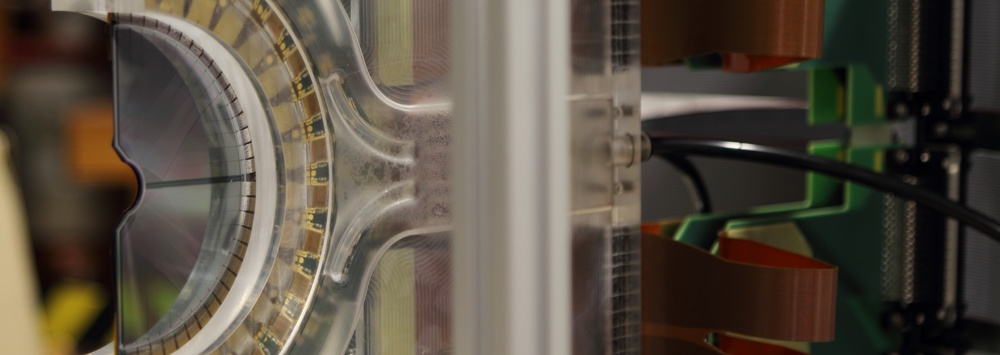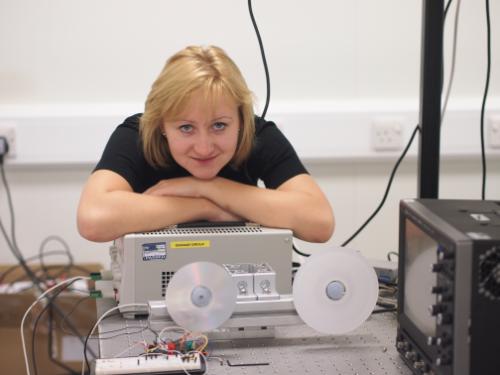
Accelerator Applications
The QUASAR Group is carrying out R&D into healthcare technologies that helps improve medical accelerator diagnostics and optimise patient treatment.
A non-invasive on-line beam monitor for proton therapy has been developed using technology from LHCb. Beam monitoring in medical accelerators is an essential part of quality and safety assurance as well as for monitoring the dose delivered to the patient. In addition to hardware development, accurate models are needed to understand proton beam behavior and optimise the integration of the beam monitoring system. As case study, we are currently carrying out a full characterisation of the Clatterbridge Cancer Centre (CCC) beamline and validation of Monte Carlo simulations in collaboration with University College London, Royal Holloway University of London and CCC within the European Research Network OMA which we are coordinating.
The Group also contributes to the design and optimisation of ultra-compact, high resolution x-ray imaging systems in collaboration with Adaptix Ltd. Compact imaging systems will allow different Monte Carlo codes to benchmark results and provide extra confidence at no extra cost before the experimental realisation.
We also apply Big Data techniques to characterise proton-induced DNA damage within the Centre for Doctoral Training LIVDAT. Specifically, we carry out Monte-Carlo studies into proton beam therapy to improve our understanding of the radiobiology of proton beam therapy.
Based on the work developed within the QUASAR Group, a new company D-Beam ltd has been established to commercialise some of our results. D-Beam provides optical diagnostics which have been developed as reliable and cost-efficient techniques for use at accelerator and clinical facilities, light sources, and reactors.
This includes, but is not limited to, our work on a laser velocimeter for the characterization of particle beams, as well as on the design of novel ultra-compact radiation sources.
